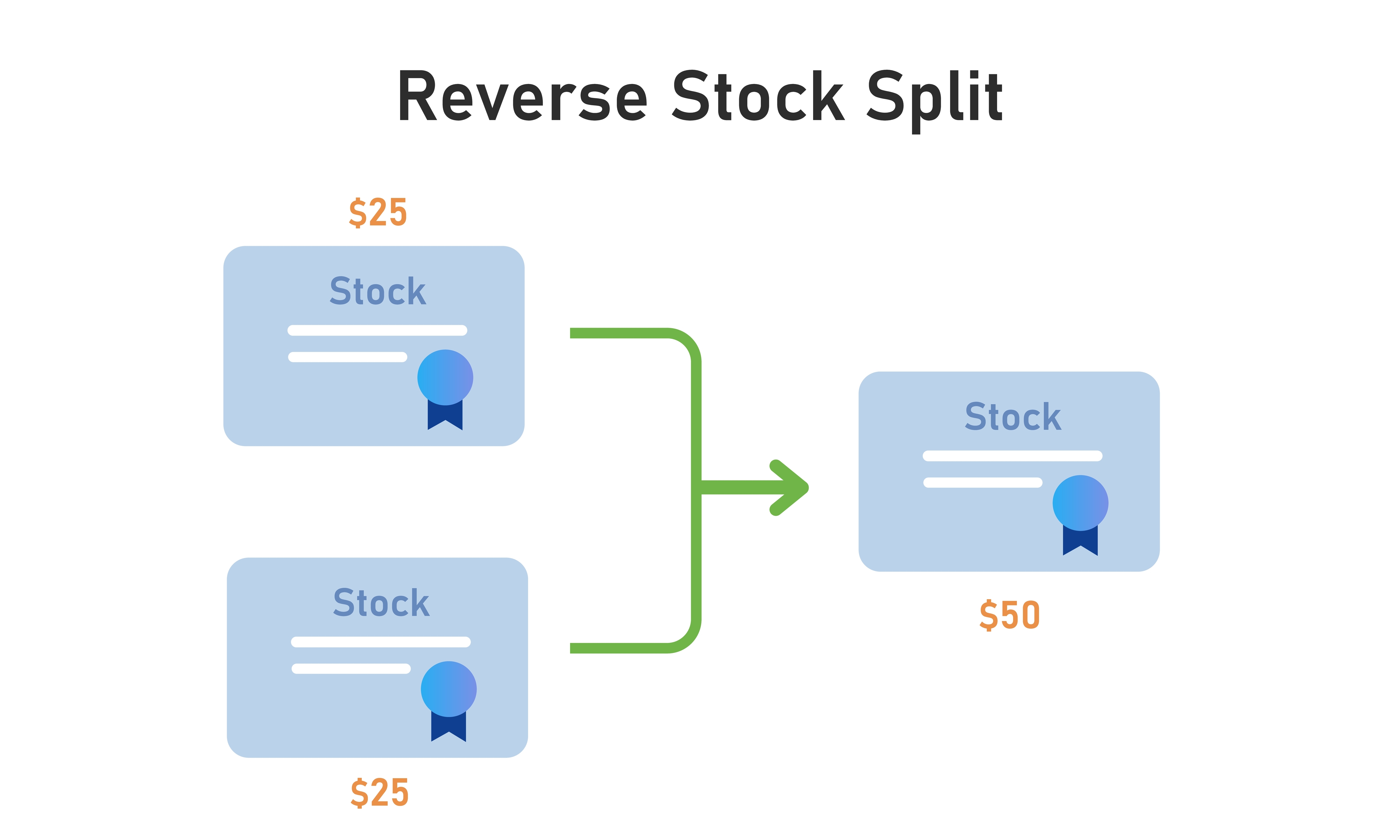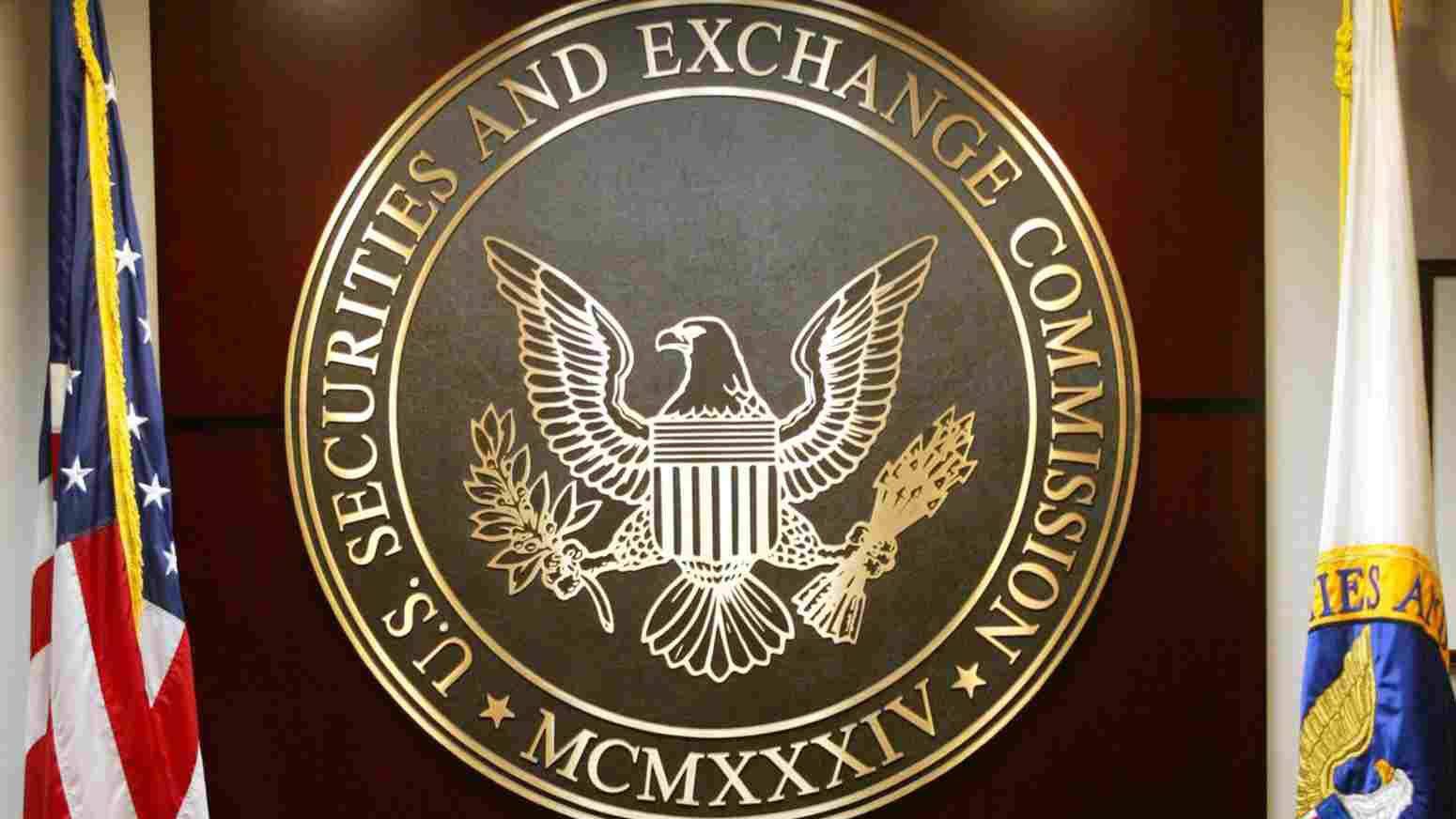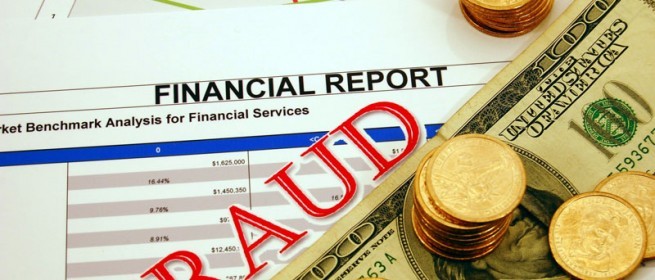Understanding Form 8-Ks
A Form 8-K is a current report that public companies must file with the Securities and Exchange Commission (“SEC”) to report material events that could impact investors and the company’s stock price. The information required by Form 8-K is considered to be “material” information. This means that there is a substantial likelihood that a reasonable investor would consider the information important in making an investment decision.
Who must file Form 8‐K?
All U.S. “reporting” companies are responsible for filing a Form 8-K. Foreign issuers that report in the United States use a Form 6‐K, which has different requirements.
Under what circumstances must a Form 8‐K be filed?
Under applicable SEC rules for periodic reporting, an SEC reporting issuer must generally report certain current events on Form 8-K within four business days after a triggering event has occurred.
The following is a list of the events that trigger a filing, along with the corresponding Section and Item references from Form 8‐K: Read More
FINRA Corporate Action Requests
Corporate actions can range from making a change to a company’s name to issuing a dividend or restructuring the company through a merger or bankruptcy. The corporate action typically aims to influence a company’s stock value and shareholder rights. It also helps in the accomplishment of several objectives, such as raising capital, returning capital to shareholders, restructuring the company, and enhancing liquidity.
Federal securities regulations task the Financial Industry Regulatory Authority (“FINRA”) with processing corporate action announcement requests by companies that trade in the over-the-counter (OTC) marketplace. Corporate actions reportable to FINRA generally include name or trading symbol changes, stock splits, dividends, mergers and acquisitions, and domicile changes. Read More
Ronald Bauer Sentenced To 20 Months For Pump-And-Dump Scheme
On March 20, 2025, the United States Attorney for the Southern District of New York announced that RONALD BAUER was sentenced to 20 months in prison for manipulating seven different stocks in a “pump-and-dump” scheme designed to fraudulently inflate the value of BAUER’s own shares in those companies. BAUER pleaded guilty on November 4, 2024.
According to the Indictment, public filings, and statements made in court proceedings, BAUER, a Canadian-UK citizen, orchestrated multiple “pump-and-dump” schemes after previously being sanctioned by the SEC in 2006 when, without admitting or denying the allegations, BAUER consented to the entry of a judgment against him providing for injunctive relief, barring BAUER from serving as an officer or director of a public company or participating in an offering of penny stock for a period of five years, and payment of disgorgement of $840,000.
In his guilty plea, BAUER admitted to securities fraud involving seven issuers: Cantabio Pharmaceuticals Inc. (CTBO) (previously Lion Consulting Group (LIOC)); Virtus Oil and Gas Corp. (VOIL) (previously Curry Gold Corp. (CURGD)); Steampunk Wizards (SPWZ) (previously Freedom Petroleum (FPET) and now known as Tianci International Inc (CIIT)); Black Stallion Oil and Gas Inc. (BLKG) (previously Secure IT Corp.); PetroTerra Corp. (previously Loran Connection Corp (LRNC) and now known as Transportation and Logistics Systems Inc (TLSS)); Black River Petroleum (BRPC) (previously American Copper Corp. (AMCU) and now known as Viva Entertainment Group, Inc. (OTTV)); and Cyberfort Software Inc. (CYBF) (previously Patriot Berry Farms (PBFI)) (collectively, the “Issuers”). Read More
Risk Factors and Other Hot Topics for Public Companies to Consider in 2025
Each year, as companies prepare to draft their year-end Annual Reports on Form 10-K, changes in rules, regulations, and disclosure trends, along with new laws and executive orders from the current presidential administration, can add complexity and uncertainty. The following are key considerations and reminders for companies. Read More
When is a NYSE and NASDAQ Director independent? Independent Director Compliance
Both the Nasdaq Stock Exchange (Nasdaq) and the New York Stock Exchange (NYSE) impose a requirement that a majority of the board of directors of their listed companies be independent directors.
Recent litigation, including SEC enforcement actions, demonstrates that officers and directors of listed companies should carefully consider this requirement. The determination of director independence is a fact-based analysis that can make compliance difficult. The specific facts of the relationship and other factors can disqualify an otherwise independent director from participating in board decisions. Complicating the analysis further, directors can be considered independent for one purpose but not another. The status of independent directors must be reassessed based on a variety of events, which vary depending on the particular facts.
In an October 2024 SEC action by the SEC’s Division of Enforcement, the SEC targeted a former Chief Executive Officer and director who failed to disclose a close personal friendship with another company executive. The SEC alleged that this lack of disclosure resulted in misleading proxy disclosures concerning his independence. The defendant in the case agreed to a five-year officer and director bar and a $175,000 civil penalty in the action.
Another highly publicized case involves a Delaware Chancery Court’s Tornetta decision, which invalidated Elon Musk’s compensation package for 2018. In that case, his lack of independence was a significant factor in the court’s determination that the compensation package was invalid. Read More
SEC Provides Rule 506(c) Guidance for Accredited Investor Verification
On March 12, 2025, the Securities and Exchange Commission (the “SEC”) Division of Corporation Finance issued a no-action letter providing SEC guidance as to Rule 506(c) of Regulation D of the Securities Act of 1933 (the “Securities Act”). The SEC guidance provides private and public companies with an easier path to rely on Rule 506(c) and advertise and raise investment funds from investors publicly and privately pursuant to the Rule 506(c) exemption. Unlike Rule 506(c), Rule 506(b) of Regulation D places limits on general solicitation and advertising.
Regulation D provides an attractive alternative to the registration requirements of the Securities Act and is the most commonly used SEC exemption. Issuers in 506(c) offerings may engage in general advertising/solicitation, provided that the offering is limited only to accredited investors and the issuer takes reasonable steps to verify that each investor is accredited.
Accell Audit & Compliance, P.A. Permanently Revoked by the PCAOB
On March 11, 2025, the Public Company Accounting Oversight Board (“PCAOB”) issued an Order Instituting Disciplinary Proceedings, Making Findings, and Imposing Sanctions, permanently revoking the registration of Accell Audit & Compliance, P.A. (“Accell”).
The PCAOB is a nonprofit corporation created by the Sarbanes–Oxley Act of 2002 that regulates auditors of publicly traded companies, aiming to protect investors and promote the public interest by ensuring the accuracy and independence of audit reports. The PCAOB periodically reviews registered public accounting firms and issues Inspection Reports.
Accell was incorporated in Florida in 2009 and is headquartered in Tampa. The firm is licensed to practice public accounting by the Florida Board of Accountancy (license number AD66617), among other state boards. During the period covered by the Order, Accell annually served as the principal auditor for 28 issuer clients. Read More
OTC Markets OTC Pink Current Reports – Material Corporate Events
In addition to the OTC Markets requirement that public companies on the OTC Pink Market file annual and quarterly reports, all companies on the OTC Pink Market are required to promptly disclose to the public any news or information regarding matters that may be material to the issuer and its securities even if that information is negative.
Persons with knowledge of such material events are considered to be in possession of material nonpublic information and may not buy or sell the issuer’s securities until or unless such information is made public.
If not included in the issuer’s previous OTC Markets filings and disclosures, or if the material events occur after the publication of such OTC Markets disclosures, the public company must publicly disclose such events by disseminating a news release within four (4) business days following their occurrence and posting such news release through an Integrated Newswire or the OTC Disclosure & News Service. Read More
Going Public and Direct Public Offerings Provide Benefits in 2025
Going public is still considered a benefit to issuers seeking to raise capital or obtain recognition of their business. Even in a down economy, private companies seek the perceived benefits of being publicly traded. While there are a variety of ways to create a publicly traded company, each comes with its own unique requirements and risks. The Direct Public Offering (“DPO”) eliminates many of the risks and expenses associated with reverse mergers into public shell companies. Issuers going public using a DPO also have fewer hurdles to obtaining electronic trading from Depository Trust Company (“DTC”).
Reverse merger companies often encounter DTC chills and global locks because of prior unregistered securities issuances and being public shells under prior management.
Types of Registered Offerings: Issuers going public with an Initial Public Offering (“IPO”) or DPO must file a registration statement pursuant to the Securities Act of 1933, as amended (the “Securities Act”). The most commonly used registration statement is Form S-1 for domestic issuers and Form F-1 for foreign issuers seeking to go public. Read More
SEC Settles with Morningview Financial, LLC and Its Managing Member, Miles M. Riccio, Alleged to Have Acted as Unregistered Dealers
On December 23, 2024, the United States District Court for the Southern District of New York entered final judgments on consent against Defendant Morningview Financial, LLC, a company alleged to have acted as an unregistered dealer; Defendant Miles M. Riccio, Morningview Financial’s managing member and partial owner; and Relief Defendant Joseph M. Riccio, Morningview Financial’s other partial owner who also received a portion of the alleged ill-gotten gains.
The SEC’s complaint, filed on September 23, 2022, alleged that Morningview Financial and Miles Riccio acted as securities dealers from approximately July 2017 through at least December 2021, notwithstanding the fact that they were not registered as dealers with the SEC, nor was Miles Riccio associated with an SEC-registered dealer. The SEC also alleged that Defendants funded 35 penny stock issuers in exchange for at least 68 convertible notes and 4 warrant agreements, converted the notes and the warrants to obtain more than 3.2 billion shares of newly issued shares of common stock, and then publicly sold over 90% of these new shares of common stock, generating over $14.8 million in trading profits. Read More
Pink Current will become OTCID on July 1, 2025
Over the past 25 years, the OTC Markets Group (OTCQX: OTCM) has made many changes to modernize the OTC Markets platform. This platform facilitates trading in over 12,000 securities, totaling hundreds of billions of dollars in transactions each year. One significant change was the introduction of the OTCQX and OTCQB markets, which hold companies to higher financial and disclosure standards.
In July 2025, OTC Markets Group will make another change: replacing Pink Current with OTCID. OTCID will be a Basic Reporting Market for companies that meet a minimal current information standard and provide management certification without the qualitative standards of our OTCQX and OTCQB markets.
Issuers that do not provide updated information, ongoing reporting, and the required management certifications will see their securities transition to the Pink Limited Market or the Expert Restricted Market, whichever is applicable. Read More
What Are American Depositary Receipts (“ADRs”)?
Many foreign companies use American Depositary Receipts (“ADRs”) as a means of going public to raise capital or establish a trading presence in the United States. ADRs are traded on exchanges like NASDAQ or NYSE as well as the OTC Markets.
An ADR is a negotiable certificate that evidences ownership of American Depositary Shares (“ADSs”), which, in turn, represent an interest in a specified number (or fraction) of a foreign company’s shares. The use of a ratio allows ADSs to be priced at an amount more typical for the U.S. public markets. While an ADR is a physical certificate evidencing an ADS, market participants often use the terms ADR and ADS interchangeably. ADRs trade in U.S. dollars and clear through U.S. settlement systems, allowing ADR holders to avoid effecting transactions in a foreign currency. Read More
Foreign Private Issuer Periodic Reporting on Form 20-F and Form 6-K
After a foreign private issuer has completed its going public transaction by completing an offering registered under the Securities Act of 1933, as amended (the “Securities Act”) or registered as a class of securities under the Exchange Act of 1934 (the “Exchange Act”), it is required as an SEC reporting company to file reports with the Securities and Exchange Commission (“SEC”) on an ongoing or continuous basis. Foreign Private Issuer SEC reporting requirements with the SEC are as follows: Read More
What to Expect When You’re Expeccting – Trump’s SEC
Market participants are speculating about the new Trump deregulation agenda and how it will impact the SEC. With Republicans in control of the 119th Congress, we expect to see SEC deregulation and changes aimed at capital formation and easing burdens on public companies. The incoming Trump administration will likely emphasize that reduced regulatory burdens may be beneficial to investments in new projects, expanded operations, and increased hiring. Of course, the existing regulatory scheme warns that deregulation would lead to excessive risk and lead to increased fraud.
Trump has been a strong supporter of digital assets and cryptocurrencies, which may result in scaling back enforcement actions as well as proposing new regulations or designating another enforcement agency to regulate this area, such as the the CFTC.
We also expect that controls and procedures violations will be reduced or eliminated and the SEC will scale back, eliminate, or not pursue enforcement actions for defective environmental, social, and corporate governance disclosures, absent an egregious fraud.
The SEC Announces Enforcement Results for Fiscal Year 2024
On November 22, 2024, the Securities and Exchange Commission announced that it filed 583 total enforcement actions in fiscal year 2024 while obtaining orders for $8.2 billion in financial remedies, the highest amount in SEC history.
The 583 enforcement actions represent a 26 percent decline in total enforcement actions compared to fiscal year 2023. Of those cases, the Commission filed 431 “stand-alone” actions, which was 14 percent less than in the prior fiscal year; 93 “follow-on” administrative proceedings seeking to bar or suspend individuals from certain functions in the securities markets based on criminal convictions, civil injunctions, or other orders, which was 43 percent less than the prior fiscal year; and 59 actions against issuers who were allegedly delinquent in making required filings with the SEC, which represented a decrease of 51 percent.
The $8.2 billion in financial remedies consisted of $6.1 billion in disgorgement and prejudgment interest, also the highest amount on record, and $2.1 billion in civil penalties, the second-highest amount on record. Approximately 56 percent of the $8.2 billion financial remedies ordered is attributable to a monetary judgment obtained following the SEC’s jury trial win against Terraform Labs and Do Kwon, who were charged with one of the largest securities frauds in U.S. history.
In addition, in fiscal year 2024, the SEC obtained orders barring 124 individuals from serving as officers and directors of public companies, the second-highest number of such bars obtained in a decade.
In fiscal year 2024, the SEC distributed $345 million to harmed investors, marking more than $2.7 billion returned to investors since the start of fiscal year 2021. The SEC also received 45,130 tips, complaints, and referrals in fiscal year 2024, the most ever received in one year, including more than 24,000 whistleblower tips, more than 14,000 of which were submitted by two individuals. The SEC issued whistleblower awards totaling $255 million. Read More
SEC brings charges against BIT Mining Ltd, Azure Power Global Ltd and Adani Green Energy Ltd in alleged massive bribery schemes
This week, the Securities and Exchange Commission (the “SEC“) brought charges in three separate alleged massive bribery schemes.
In action #1, brought on November 18, 2024, the SEC announced that BIT Mining Ltd., formerly known as 500.com Limited, agreed to pay a $4 million civil penalty to resolve charges that it violated the Foreign Corrupt Practices Act (FCPA) from 2017 to 2019 by engaging in a widespread bribery scheme to influence numerous foreign officials, including members of Japan’s parliament, in efforts to establish an integrated resort casino in Japan.
500.com was an online sports lottery service provider headquartered in Shenzhen, China, whose shares traded on the New York Stock Exchange (“NYSE”) under the symbol “WBAI.” In 2021, the issuer changed course and entered the cryptocurrency industry, changing its name and symbol to BIT Mining Ltd (BTCM). As of today, it trades on the NYSE.
The SEC’s order finds that the bribery scheme involved illicit payments of approximately $2.5 million in the form of cash bribes, entertainment, and extravagant trips. The order further finds that the bribes were authorized by a 500.com senior executive and that, after the bribery scheme came to light, the company never entered the market. Read More
The SEC’s Amended “Dealer” Definition for Toxic Lenders
In the past five years or so, we’ve written many times about “toxic lenders”. These toxic lenders have been active since the end of the last century and have flourished providing financing to small publicly traded companies quoted by the OTC Markets. The kind of financing they offer is called “market adjustable” by the Securities and Exchange Commission and “toxic funding” or “death spiral funding” by many of its victims. The way it works is simple: the financier and the public company sign agreements binding each party to certain obligations and guaranteeing each party certain rights.
The public company will usually get money upfront. In return, the public company will issue market adjustable securities—a promissory note, preferred stock, warrants, debentures—to the toxic lender. The “market adjustable” part of the deal means that the securities sold will be convertible to common stock at a price that adjusts based on the public company’s trading price. Sometimes, the shares are registered with the SEC and can be sold immediately, and other times, the toxic lender can’t sell immediately because the convertible instrument will be subject to Rule 144, which means a holding period applies. The lender can’t sell for six months if the public company is an SEC registrant, or one year if it is not.
In a perfect world, these kinds of loans would be a great success for all involved: the public company, a startup, or at least a young company, would get the cash it needs in the short term and can use it to make more money, with which it could pay off the loan. In the end, the deal would cost him only a reasonable amount of interest.
But the world is not perfect, and this kind of financing comes with a catch. There is some risk for the toxic lender, because the value of the stock in question may be lower, not higher, when they seek to sell from the time the stock purchase agreement is signed. To compensate for this risk, the toxic lender will receive a large discount to the market price of the stock when he does convert and sell. The discount is usually between 40 and 50 percent but may be as high as 60 or 70 percent.
Securities Attorney Matthew C McMurdo suspended by the SEC
On September 20, 2024, the Securities and Exchange Commission (the “SEC” or “Commission”) issued an Administrative Order against securities attorney Matthew C. McMurdo for violating Section 4C of the Securities Exchange Act of 1934 (“Exchange Act”) and Rule 102(e)(1)(ii) of the Commission’s Rules of Practice.
According to the Order, from 2016 – 2021, McMurdo, who has been licensed to practice law in the state of New York since 1998, was engaged as corporate counsel for Enviro Impact Resources, Inc., f/k/a Industry Source Consulting, Inc. (“INSO”), is a non-SEC reporting, microcap public company with multiple former names, including Vega Biofuels, Inc. (“Vega”). During that time, McMurdo signed and then issued 10 opinion letters (“Opinion Letters”) addressed to OTC Markets, in which he opined on various annual and quarterly disclosure reports issued by Vega and INSO. Vega and INSO used these Opinion Letters to be quoted on OTC Markets and to allow broker-dealers to quote the stock of Vega and INSO. Read More
SEC Charges Multiple Individuals and Entities in Relationship Investment Scams
On September 17, 2024, the Securities and Exchange Commission (the “SEC“) charged five entities and three individuals in connection with two relationship investment scams involving fake crypto asset trading platforms NanoBit and CoinW6, respectively. The SEC’s two complaints allege that the schemers used WhatsApp, LinkedIn, and Instagram to gain the trust and confidence of the victims before luring them to fake crypto asset trading platforms and stealing their money. These charges are the SEC’s first enforcement actions alleging these types of scams.



































Understanding IPOs
An “IPO” is the initial public offering by a company of its securities. In an IPO, the company offers and sells stock, most often its common stock, through an underwriter. When a company cannot locate an underwriter, it may sell its own shares using a direct public offering (“DPO“).
In the United States, these offerings are generally registered under the Securities Act of 1933, as amended (the “Securities Act”), and the shares are often but not always listed on a national securities exchange such as the New York Stock Exchange (the “NYSE”), one of the Nasdaq markets (“Nasdaq”) or the over-the-counter market (“OTC Markets”).
Upon the completion of an IPO, a company becomes a “public company,” subject to all of the regulations applicable to public companies, including those of the Securities Exchange Act of 1934, as amended (the “Exchange Act”). Read More